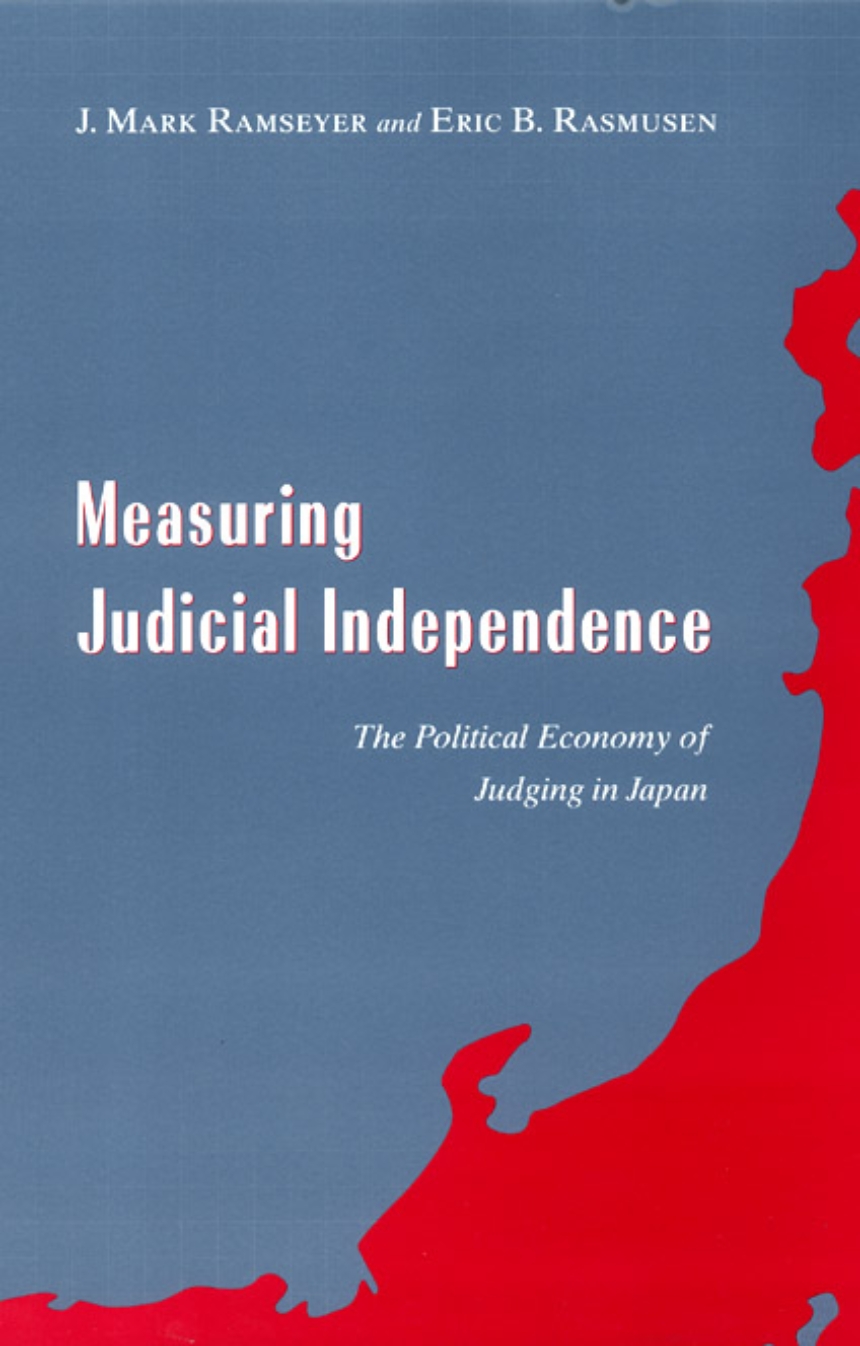Measuring Judicial Independence
The Political Economy of Judging in Japan
9780226703886
9780226703879
Measuring Judicial Independence
The Political Economy of Judging in Japan
The role of the U.S. Supreme Court in the aftermath of the 2000 presidential election raised questions in the minds of many Americans about the relationships between judges and political influence; the following years saw equally heated debates over the appropriate role of political ideology in selecting federal judges. Legal scholars have always debated these questions—asking, in effect, how much judicial systems operate on merit and principle and how much they are shaped by politics.
The Japanese Constitution, like many others, requires that all judges be "independent in the exercise of their conscience and bound only by this Constitution and its laws." Consistent with this requirement, Japanese courts have long enjoyed a reputation for vigilant independence—an idea challenged only occasionally, and most often anecdotally. But in this book, J. Mark Ramseyer and Eric B. Rasmusen use the latest statistical techniques to examine whether that reputation always holds up to scrutiny—whether, and to what extent, the careers of lower court judges can be manipulated to political advantage.
On the basis of careful econometric analysis of career data for hundreds of judges, Ramseyer and Rasmusen find that Japanese politics do influence judicial careers, discreetly and indirectly: judges who decide politically charged cases in ways favored by the ruling party enjoy better careers after their decisions than might otherwise be expected, while dissenting judges are more likely to find their careers hampered by assignments to less desirable positions.
Ramseyer and Rasmusen’s sophisticated yet accessible analysis has much to offer anyone interested in either judicial independence or the application of econometric techniques in the social sciences.
The Japanese Constitution, like many others, requires that all judges be "independent in the exercise of their conscience and bound only by this Constitution and its laws." Consistent with this requirement, Japanese courts have long enjoyed a reputation for vigilant independence—an idea challenged only occasionally, and most often anecdotally. But in this book, J. Mark Ramseyer and Eric B. Rasmusen use the latest statistical techniques to examine whether that reputation always holds up to scrutiny—whether, and to what extent, the careers of lower court judges can be manipulated to political advantage.
On the basis of careful econometric analysis of career data for hundreds of judges, Ramseyer and Rasmusen find that Japanese politics do influence judicial careers, discreetly and indirectly: judges who decide politically charged cases in ways favored by the ruling party enjoy better careers after their decisions than might otherwise be expected, while dissenting judges are more likely to find their careers hampered by assignments to less desirable positions.
Ramseyer and Rasmusen’s sophisticated yet accessible analysis has much to offer anyone interested in either judicial independence or the application of econometric techniques in the social sciences.
224 pages | 3 line drawings, 42 tables | 6 x 9 | © 2003
Asian Studies: East Asia
Law and Legal Studies: Law and Economics
Political Science: Judicial Politics
Table of Contents
Preface
Acknowledgments
Introduction: 1968
1. The Setting
2. Preliminary Empirics: Methodology and Communist Judges
3. The Effect of Judicial Decisions: Anti-Government Opinions and Electoral Law Disputes
4. Political Disputes: Military, Malapportionment, Injunctions, and Constitutional Law
5. Administrative Disputes: Taxpayers against the Government
6. Criminal Cases: Suspects against the Government
7. Toward a Party-Alternation Theory of Comparative Judicial Independence
8. Conclusions
Appendixes
References
Index
Acknowledgments
Introduction: 1968
1. The Setting
2. Preliminary Empirics: Methodology and Communist Judges
3. The Effect of Judicial Decisions: Anti-Government Opinions and Electoral Law Disputes
4. Political Disputes: Military, Malapportionment, Injunctions, and Constitutional Law
5. Administrative Disputes: Taxpayers against the Government
6. Criminal Cases: Suspects against the Government
7. Toward a Party-Alternation Theory of Comparative Judicial Independence
8. Conclusions
Appendixes
References
Index
